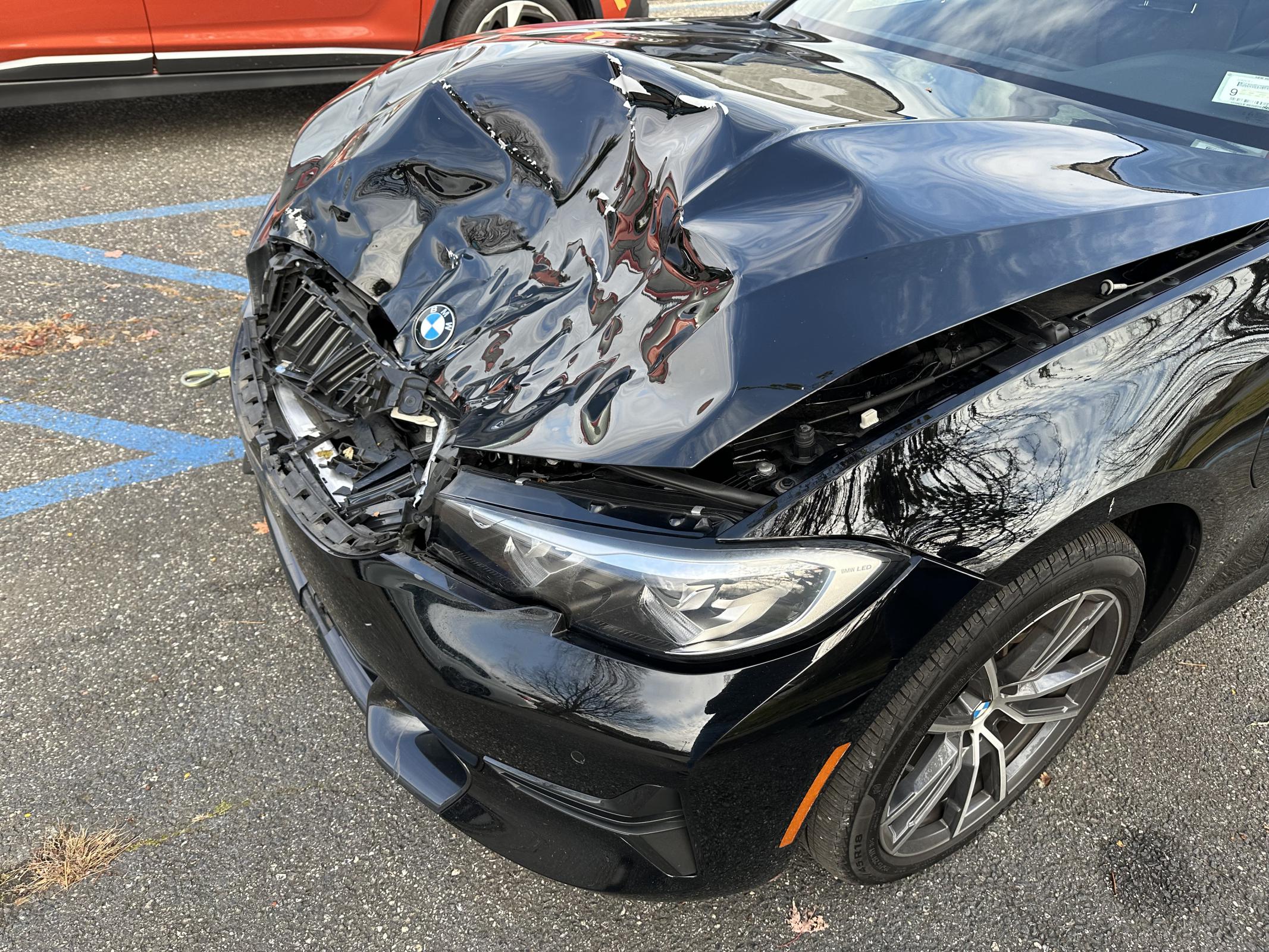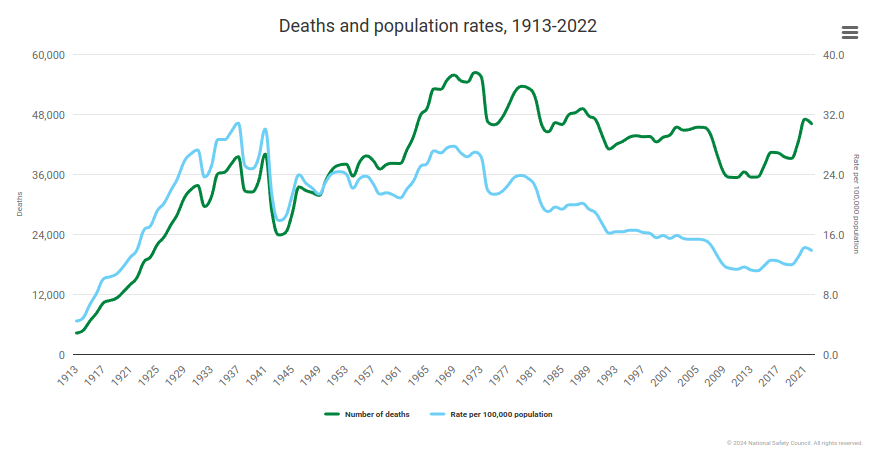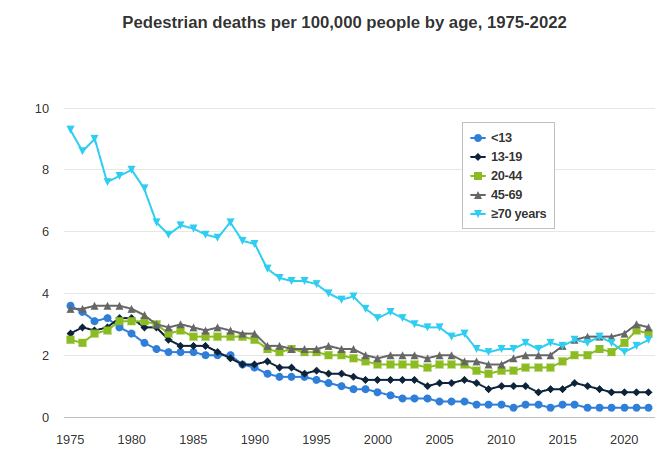This is regarding the NZ government’s plan to introduce higher speed limits. Unsurprisingly, the conservative party is in power at the moment.
It’s also worth noting that the previous government had a Road to Zero policy similar to the Vision Zero policies mentioned in the article. Part of this involved reducing speed limits on high risk roads.
The new government committed to ending that policy, and increasing speed limits on some roads over that were not reduced under the previous policy.
Also relevant is they are building roads that no one wants, and creating huge debt doing it…
It’s also worth noting the current speed limits were set in 1985. I know this is the wrong place to point it out, and I do hate cars, but acknowledge they have value for some use cases. That said…
Since 1985, car safety evolution has introduced: -Traction Control -Anti-lock Brakes -Airbags -Electronic Stability Control -Crumple Zones -Adaptive Cruise Control -Blind spot detection -Pedestrian detection
…just to name a few. Cars are safer now than they’ve ever been, for both drivers and pedestrians (the Cybertruck not withstanding), so it’s equally strange to suggest that the same speed limit that was set in the mid-80s is the best balance of convenience and safety. If it’s simply a matter of reduction in absolute terms, why not LOWER the speed limit?
Not saying the article’s premise is wrong, but it’s kneejerk. In fact, smartly using speed limits can help to push traffic into out of the way areas where it will be less problematic to pedestrians. For example, lowering the speed limits in pedestrian areas in cities and increasing them less dense, outer areas can both improve traffic flow and make dense spaces more pedestrian friendly by diverting traffic into roads with fewer people. And intercity traffic through areas with little to no pedestrian traffic is a no-brainer.
I understand that trucks and SUVs are more dangerous to pedestrians due to increases in hood height and reduction in curvature (along with reduced visibility). Is this not correct?
It is - both things can be true. There are certainly some types of vehicles and conditions that are less safe than others, often for unjustifiable and stupid reasons, but the general trend of the average vehicle over time is towards being much safer than in the past. You’d still rather be hit by an SUV with a crumple zone than a sedan with an all steel body, all else being equal.
I’m not sure that’s true for pedestrians? Going over the hood on a sedan might be better…
If you get the opportunity. It’s just as likely the impact of the all-steel frame with no crumple actually bisects your body right in half, or crushes your internal organs to paste.
Rolling over a hood is “better” because it consumes energy. Everything about mitigating a crash impact is about putting as much of the energy of the impact as possible somewhere other than a human body. You don’t get the opportunity to do that at all if the initial impact is rigid. It’s putting all that collision energy directly into you.
I don’t think the average human has enough mass to meaniningfully use a crumplezone. The trend of higher bumper heights causes more head an chest injuries than lower bumper heights. Higher bumper heights also increase the chances of being run over.
The average car is also much heavier these days and simple math means that car will have more force on impact at the same speed compared to a lighter car.
You are absolutely right that cars are heavier now, which means they are putting more energy into a collision, but cars are also better at dissipating that energy. I don’t actually know enough to know what wins in that face-off. You could very well be right. I’d defer to someone with more expertise in collisions.
If cars are safer for pedestrians than ever, then why are pedestrian deaths increasing?
Number of cars. Increase the number of cars, you increase the number of deaths. But any given collision is more likely to be survivable than in the past.
Also, it’s not a perfect analog, but a quick search for deer hits and you can see modern cars crumple just fine.

Don’t get me wrong… I’m not saying this deer was out dancing that very night, but if you’re gonna hit me at 30 MPH with either a flat, unyielding piece of steel with potentially sharp edges and/or rusted spots, or a soft piece of plastic or fiberglass formed to cushion my impact into the engine where the REALLY hard parts are, I’m going to choose the plastic/fiberglass every time.
Edit: Here. Just to back up the information I’m giving you…

The ABSOLUTE number of deaths are increasing, because the number of people and cars are increasing. But as a function of percentage of population they are only slightly above the lowest they’ve been since the 20’s. Modern cars are much safer. Even a bad SUV with horrible visibility is safer to all involved in a crash than an average car in the early 80’s. The numbers don’t lie.
Edit again: To give pedestrian numbers to go with that:

You do have a point… there ARE increases in recent years, but overall the rate is still nearly half of the rate in the 80s. You are correct the most very recent trend is worrying, however.
I don’t think the poster was speaking in the context of pedestrian safety?
Also, typically pedestrians aren’t anywhere near highways and other high-speed roadways. So not really a concern in this context.
cars are safer now than they’ve ever been for both drivers and pedestrians
Cars don’t need to be going high speeds to be dangerous to pedestrians. Roads near pedestrians can be designed poorly allowing drivers to go significantly faster than the intended limits.
Simple answer is an increase in the number of cars and the number of pedestrians. If cars are 10x safer for pedestrians now, but there are 1000x more interactions…
Vehicle sizes. SUVs and trucks kill pedestrian more often than sedans and coupes do
Oh, welcome to the eu. Speed limits are going down, generally. At least in this nick of the woods, we aren’t driving as fast as in the eighties. The goal is zero Trafic fatalities.
Totally viable as an option if that’s the goal.
If that’s New Zealand’s goal, they should do exactly the same.
But if they’re looking for a balance between risk and convenience, there’s factors to be considered that the article glosses over.
Speed limits are generally bs, only useful for justifying police budgets. The goal should be designing roads with safety in mind.
Introducing arbitrary rules helps nobody. Not in reducing the amount of cars on the road, not people who are forced to drive for some reason.
Speed limits are not bs. The energy of kinetic motion increases with the square of the velocity. Double the speed, quadruple the amount of energy. That matters.
And road design factors into the average driver’s speed far more than a sign with with a number on it
The limit should be the enforceable and safe speed for the road, the road design should reflect the desired speedlimit.
My area recently built highway bypasses around town. One section is built exactly like a freeway but they slapped a 60 km/h sign on it. Nobody does 60 km/h because the road feels like, and is designed for, 100 km/h. This is the wrong way to do it. If a road is a 60 km/h zone, the lanes should be more narrow and the banking on the turns should not allow average drivers to feel safe at 120 km/h.
I think you’re thinking about this backwards. Instead of ripping up and replacing the ENTIRE ROAD, just replace the 60 km/h sign with a 100 km/h sign.
Speed limits are arbitrary factors set in place that don’t make sense for the roads they’re on. They do nothing for safety, and often become a speed target. If you want to reduce speed of cars (which I agree is a good thing) the best way to do so is to make traveling above a certain speed feel dangerous to the driver. Chicanes, medians, and narrow lanes encourage that. Speed limits do not.
Speed limits are bs.
I disagree. But not necessarily for the reasons you might think.
I’d be on the side of doing Autobahn-style limits that are adjusted to traffic and road conditions. I’ve done over 100 on the Autobahn and it’s fine.
Why do I disagree? Because we as Americans on the roadway are fucking idiots. People don’t maintain their cars. People put stupid mods on, like lifted trucks, super-wide off-road tires, stanced cars, people staring at cellphones or watching videos. Mods that significantly change handling, rollover risk, and stopping distances. There’s always some asshole who has to drive like the road is a personal racetrack. There’s always people completely disregarding the “keep right except to pass” rules.
Why do high- or no-speed limits work on the Autobahn? Because of rigid rules that enforce compliance with vehicle safety and behavior on the roadway.
Americans have too much of a fuck-you attitude about rules, especially about their cars. They literally couldn’t handle the freedom of a no-speed-limit road, there’d be daily catastrophes.
I’ve done over 100 on the Autobahn and it’s fine.
Just make sure to drive on the rightmost lane when going that slow.
Hah, no…that lane is loaded with trucks going slow. The middle lane is fine for 100+ (mph…not kmh) if you can find a spot. Got the crap scared out of me in a no-limit zone when a supercar blasted by doing 150 easy in the left lane. The rule absolutely applies there, stay the heck out of the left lane unless passing! And keep an eye on your rear view in a no limit zone, people haul ass.
They have the same attitude about speed limits.
I didn’t want to be pedantic and list every possible variance. There is no perfect system. Yes, of course, there are going to be people on the Autobahn driving stupid, using phones, and in less-than-stellar cars. However, implementing autobahn-style speeds and the rules needed to make it work would never fly in the US.
Having watched drivers in a traffic backup on the Autobahn neatly organize themselves to leave a lane empty for emergency vehicles even though there were no emergency vehicles in the vicinity, my conclusion is that there’s no fucking way that American drivers have the discipline or sense of social responsibility necessary to handle Autobhan-style driving.
IMO (at least for highways) the most important rule that should be enforced is lane usage. Having everyone focused on the speed limit creates a situation where the people who rigidly follow them (while somehow still ignoring the one about keeping right if you’re not passing) end up spread across all lanes going the same speed while the people wanting to exceed the speed limit, many of whom are morons, end up tailgating the rule followers causing traffic congestion to bad, and creating a kind of “Frogger” situation with them weaving in and out of traffic to get by which is even more dangerous. So, since we’re never going to reach a state where everyone just follows all the damn rules. If we have to focus on one, the one that allows those faster drivers to pass by and reduces congestion would be preferable. People who want to drive a safer speed could still do so, they just need to keep right while doing it. That in my opinion is the safest way to go about it for everyone given human behavior being what it is. The day where we figure out how to get most people off the roads cannot come soon enough.
TBF Autobahn speed limits are followed sorta like America does - people go a little over, but you don’t see situations there like the US where people do 75 in a 55. More like 5 over. Speed cameras are rare, and people know where they are.
Lane discipline is huge, and Americans couldn’t give a flying F about it, because fuck the rules, and fuck the 10 cars stacked up behind me trying to pass me, too. So yeah, absolutely, fix that and traffic would flow a lot better for everyone. If you’re not passing, keep right. That’s impossible for some people to obey.
75 in a 55
A big reason for that is so many places set the speed limit way lower than what is actually safe on that road. There’s a couple 3-4 lane interstates I drive on regularly that are just about perfectly flat and straight for 70-80 miles and they have the speed limit set to 60. Traffic permitting you can easily do 90+ on those, the only thing that makes it dangerous is the other people on the road that are rigidly adhering to the 60mph speed limit scattered through all lanes. If the speed limit was set more appropriately I don’t think we’d have as many problems with people speeding.
I’m afraid I have a hard disagree with conditions.
The road may be safe for higher speeds.
You don’t get to determine that at everyone else’s expense. I regularly drive roads where people average 15-20 over and they are not suitable for those speeds, it’s one fuckup away from a NASCAR-style pileup. People are shit judges of what is safe based on their perceived driving skill (99.999999% of which are horrible) and how important they feel leaving 5 minutes later than they should have for their appointment is.
Anyone significantly outside the average speed is the danger. Faster cars maneuver more abruptly and brake harder, by far creating more danger than those going even modestly over the limit. Too slow cars force those maneuvers and frustrate people making them drive like assholes because cars are an extension of ego for too many people.
Like I said, I’d be fine with Autobahn style limits, but there’s always someone who says fuck the rules because this road can go faster, and that’s why we can’t have nice things.
Edit: And this popped into my head after I wrote this - Even if the road might be capable of safely supporting 70-90mph traffic, cars are not designed to absorb that much energy when something goes wrong. No, “just redesign them” is not an acceptable answer. Changing to a structure that can better absorb higher speed impacts and keep the occupants alive increases weight and thereby reduces economy, and regulations aren’t going to let that happen at all.
Why do high- or no-speed limits work on the Autobahn? Because of rigid rules that enforce compliance with vehicle safety and behavior on the roadway.
So enforce those rules. Pretty simple.
So enforce those rules. Pretty simple.
Wow. You solved everything! Why didn’t anyone ever think of that?
Good question.
Children at risk
I don’t have time to read the article, I’ll check it out later today, but I am immediately suspicious of anything that has a whole section on “think of the children!”
New Zealander here. A lot of the lower limits being rolled back were specifically targeting school zones. This is genuinely about children’s safety
They plan on raising the limit when there’s no children around.
Yeah it’s crap. Summary of arguments:
-
raising speed limits on highways won’t relieve congestion: 1) yes it will, and 2) that’s not the point anyway
-
Higher speeds cause more crashes: fair point
-
Higher speeds burn more fuel: no shit
-
Think of the children!: not even worth addressing
-





